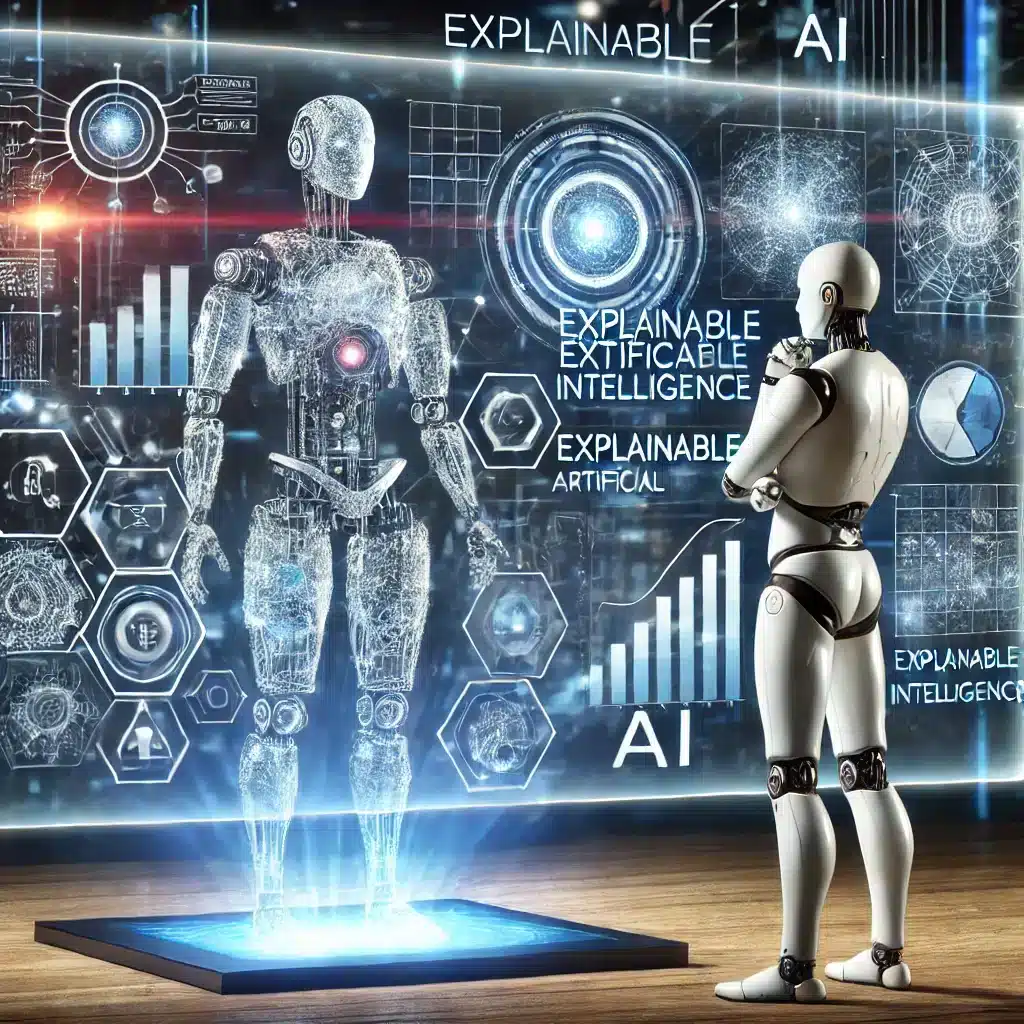Artificial Intelligence (AI) is revolutionizing industries worldwide, and B2B sales are no exception. Integrating AI into the complex sales cycles of B2B sales transforms how businesses approach sales strategies, productivity, and customer interactions. Understanding AI’s influence on these intricate processes can help organizations harness its potential, ensuring more efficient and effective sales workflows.
What Are the Key AI Tools in B2B Sales?
AI tools are game-changers in B2B sales, offering capabilities to analyze vast datasets and provide actionable insights. Predictive analytics, AI-powered CRM systems, and advanced chatbots streamline workflows and boost efficiency. For instance:
- Predictive Analytics: Anticipate customer behavior and market trends.
- AI-driven CRMs: Provide personalized sales recommendations and manage customer interactions seamlessly.
- Chatbots and Virtual Assistants: Deliver 24/7 engagement, enhancing customer experience without human intervention.
By adopting these tools, sales teams can optimize outreach, enhance lead conversion, and make data-driven decisions.
How Does Generative AI Enhance B2B Sales Strategies?
Generative AI takes sales strategies to the next level by creating persuasive and targeted content tailored to potential clients’ preferences. This advanced technology leverages large data sets and predictive analytics to generate highly customized content that resonates with specific client needs. As a result, businesses can develop more effective sales strategies and improve client engagement.
For instance, generative AI is capable of producing:
- Personalized emails and proposals, ensuring that communication is tailored to the unique requirements of each client.
- Data-backed sales pitches, which are based on past interactions and predictive modeling, offering insights into what is most likely to resonate with potential clients.
Moreover, automating content creation not only saves time but also ensures the content remains relevant. This streamlining of the sales process helps businesses build stronger client relationships by delivering messages that speak directly to the customer’s pain points and needs. As a result, businesses can foster trust and loyalty, ultimately driving growth in competitive B2B markets.
How does AI automate repetitive tasks?
AI technologies excel at automating repetitive and time-consuming tasks, allowing sales teams to focus on more strategic activities. AI algorithms can ingest data, schedule follow-ups, and manage customer interactions across multiple platforms. By automating these mundane tasks, AI improves productivity, allowing sales reps to spend more time building relationships and closing deals. Automation improves efficiency and reduces the potential for human error, creating more reliable and consistent sales processes.
What Are Future AI Trends in Sales Automation?
The future of AI in B2B sales automation is likely to be dominated by advancements in machine learning and AI algorithms. These future trends include more sophisticated predictive analytics, enhanced AI-generated content, and seamless integrations of AI with other technologies such as the Internet of Things (IoT) and blockchain. Businesses will benefit from AI’s increasing capacity to predict market shifts, automate complex sales processes, and provide hyper-personalized customer experiences. These AI applications will drive more efficient sales strategies and more robust customer engagement.
How to Overcome Data Privacy Concerns?
Data privacy is a significant challenge in the implementation of AI in sales. To overcome these concerns, businesses need to adopt rigorous data protection measures. This includes securing data storage, ensuring compliance with data privacy regulations like GDPR, and transparency in data usage. By implementing these measures, businesses can build trust with their customers and mitigate the risks associated with data breaches. The responsible use of AI in handling customer data will be crucial in maintaining ethical standards and protecting the interests of stakeholders.
What Are the Potential Downsides of Relying on AI Systems?
Although AI offers numerous advantages, there are potential downsides to relying heavily on AI systems. These include the risk of over-automation, where human judgment and creativity may be underutilized. Additionally, AI systems can sometimes perpetuate biases present in data, leading to unfair or discriminatory outcomes. Businesses need to ensure that AI systems are regularly audited and refined to address any biases and maintain fairness. Furthermore, there is the challenge of maintaining AI systems, which require constant updates and fine-tuning to stay effective and relevant.
How to Ensure That AI is Used Ethically in Sales?
To ensure that AI is used ethically in sales, businesses must establish clear guidelines and principles for AI deployment. This includes defining what constitutes ethical AI use, promoting transparency in AI-driven decisions, and protecting customer rights. Ethical AI also involves accountability, where businesses take responsibility for the outcomes produced by their AI systems. By fostering a culture of ethical AI use, organizations can balance the benefits of AI with the need to safeguard the well-being and trust of their stakeholders.

What is the Overall Impact of AI on Society Through B2B Sales?
AI is reshaping B2B sales by not only transforming internal business processes but also by delivering widespread societal benefits. Through the enhancement of efficiency, improvement in decision-making, and the personalization of customer interactions, AI is facilitating smoother, more productive transactions. With AI, businesses are able to respond more rapidly to market demands, providing tailored, effective customer experiences while fostering deeper and more strategic partnerships.
In addition to business transformations, the societal benefits of AI in B2B sales are vast. AI contributes to the development of more sustainable business practices by streamlining operations and reducing waste. As a result, businesses can achieve better outcomes while minimizing resource consumption. Moreover, AI promotes greater transparency in business interactions, which helps in building trust among clients and partners and encourages long-term relationships.
Key Societal Benefits of AI in B2B Sales
- Efficiency and Productivity Gains: AI helps businesses streamline their sales processes, enabling them to work more efficiently and effectively. This increases productivity at both the company and industry levels, leading to faster growth and more competitive markets.
- Improved Customer Experience: Through personalized interactions, AI ensures that B2B sales are tailored to the needs and preferences of each client. This enhances the customer journey, improves satisfaction, and strengthens long-term relationships.
- Sustainability: AI’s role in optimizing resource usage and reducing inefficiencies helps create more sustainable business practices. By minimizing waste and maximizing operational efficiency, AI contributes to environmental sustainability while driving business success.
- Innovation and Growth: AI-driven insights lead to better decision-making, helping businesses identify new opportunities and market trends. This fosters innovation, creating new business models, products, and services that drive economic growth and societal progress.
- Transparency and Trust: By automating and streamlining business operations, AI makes processes more transparent, enabling companies to demonstrate accountability and fairness in their dealings. This builds trust and promotes healthier business relationships.
What are the societal benefits of AI in B2B transactions?
The societal benefits of AI in B2B transactions go beyond economic benefits. AI provides efficiencies that can lead to more sustainable business practices, less waste, and more optimal resource use. Additionally, AI can improve the overall quality of business interactions by enabling better decision-making and enhancing customer experiences. This, in turn, fosters a more collaborative and transparent business environment, which encourages trust and long-term partnerships. The broader impact on society includes accelerated technological advancements and new opportunities for innovation across industries.
Accelerating Technological Advancements and Innovation
Beyond business operations, AI is accelerating technological advancements across various industries. With the ability to process vast amounts of data and make predictions, AI unlocks new opportunities for innovation. As AI continues to evolve, it creates space for new solutions and services, fueling growth across sectors and contributing to the broader societal progress.
In summary, the societal benefits of AI in B2B transactions go far beyond its economic impact, influencing sustainability, customer satisfaction, collaboration, and innovation. As AI continues to reshape industries, its positive influence on society will only increase.
Conclusion
AI is reshaping the landscape of B2B sales by increasing efficiency, driving personalization, and transforming workflows. From predictive analytics to generative AI, these tools empower businesses to achieve better outcomes and build stronger relationships with customers. However, implementing AI does come with challenges, such as data privacy concerns and the potential for over-reliance on automation.
To fully realize the potential of AI, businesses must address these challenges responsibly. Companies that embrace AI in a strategic, ethical, and innovative way will be well-positioned to thrive now and, in the future, leading the charge in the next phase of sales transformation.
FAQs


